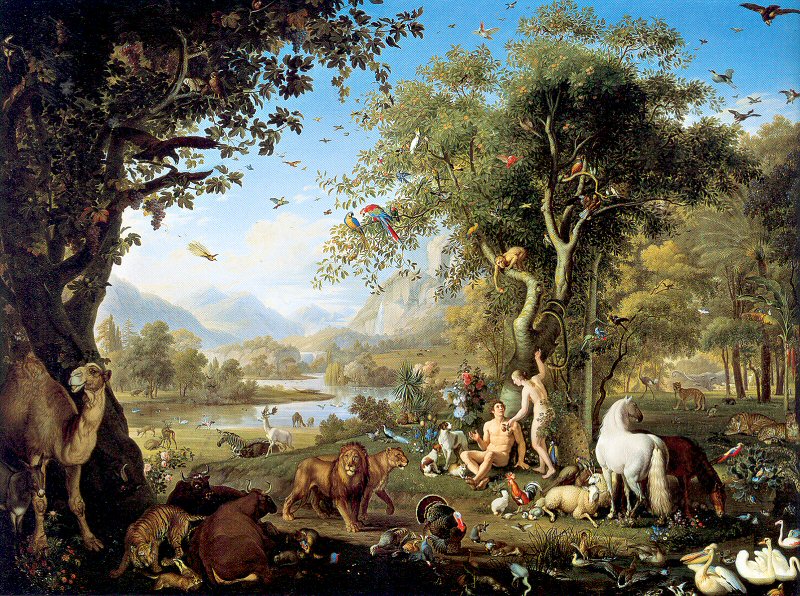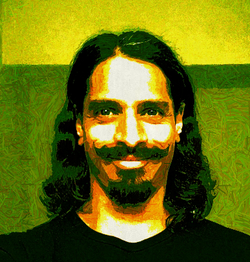In school, I was taught the concept of Plato's Cave, where it basically discusses the idea that people see the world through a limited lens of perception. We are born into cultures, religions, and ways of life that teach us how to survive and make decisions. The allegory of the cave, sometimes referred to as a parable, illustrates how one's eyes can deceive them when all they can see are "reflections on a cave wall". Modern day interpretations of this parable are exemplified in cinema with movies like "The Matrix". The truth can be painful to see at first, but once our eyes grow accustomed to the "light" we are able to see reality as it is. For some, living with the reality of the truth may prove to be too much for them to handle and therefore they seek the shelter of the cave to blind them from a harsh reality. It's understandable.
Personally, I am a seeker of the truth and wish to exist within "the light" outside the cave. I struggle with reconciling my reality with the perceived reality of others within "the cave". It takes maturity to be the same person in private as well as in front of others. To help me stay accountable, I use tools such as prayer and meditation. I frequently visit friends, family, and places that remind me of my connection to the world which keeps me firmly grounded in reality. For example, my friends know me well enough to distinguish my sincerity from frivolity, my family serves as a reminder of where I came from and provides a clue as to where I am going, and finally I have discovered through travel that reality is relative to one's environment.
“He who travels far will often see things Far removed from what he believed was Truth. When he talks about it in the fields at home, He is often accused of lying, For the obdurate people will not believe What they do not see and distinctly feel. Inexperience, I believe, Will give little credence to my song.”
― Hermann Hesse, The Journey to the East: A Novel
Before one can be honest to others, or to another, they must be honest with themselves. They must look carefully within themselves and see reality as it is. Whether they have faults, flaws, insecurities, or whatever, they must acknowledge and accept this reality before they can reconcile (if they are still able to do so) their perceived reality with actual reality (like a bald man removing his wig).
Before a person can be faithful to another they must be faithful to themselves. I find it comical that the biggest fear a person who commits adultery or unfaithfulness towards their partner is to become a victim of the same unfaithfulness. This insecurity stems from the knowledge that infidelity is and can be a reality and so the villain becomes fearful of becoming the victim. Their fear entraps them and they live as a prisoner to their conscience projecting their fear onto others. The good news is that they can be freed of this burden the moment they resolve to return to a state of reconciliation and faithfulness. This requires the prisoner to acknowledge their transgression(s), attempt to make amends, and practice being faithful to their new character.
Marriage (especially in this country) is in danger of becoming a meaningless sacrament fraught with perilous financial and psychological damages. People often get married or make life long commitments far before they are aware of themselves and have the maturity to enter into such grave decisions. The biological imperative to have children often drives people to rush into lifelong bonds. With time, people learn about themselves and their character. They may be tempted to taste forbidden fruit, which can lead to the deterioration of the fabric of trust between spouses, children, extended family and friends, neighbors, communities, and society at large. The condition of humans to succumb to temptation is illustrated in the "Creation Story" with Adam and Eve, the fabled parents of mankind. In other words, it is in our nature to yield to temptation; however, with the gift of faith one can steer away from sin and avoid being ensnared by a prison of guilt, fear, and hapless suffering.
Faith is the antidote to fear, it is the 'ring' that holds the keys to our prison cell, and with its practice comes the competency to deal with temptation and emerge its master instead of its slave. Displays of faith can be seen in one's behaviors both in public and especially in private. If one is tempted to stray from a righteous path, they also retain the power to choose their direction. They may remove themselves from the environment, they can place themselves in the company of the faithful, or they can choose to face it alone. The individual retains the power to choose to become a victim or victor over their demon.
Our lives are our example. It is our word and deed embodied in daily reality. I wish to be an advocate of faith and inspire it in others. Faith is a precious gift from God, and both men and women can choose to accept, practice, and embody this or not. We have been given the gifts of: free will, faith, and the experience of life. "Good" or "Bad" doesn't exist, reality is in our attitudes and our actions.
― Alexandre Dumas, The Count of Monte Cristo



 RSS Feed
RSS Feed
